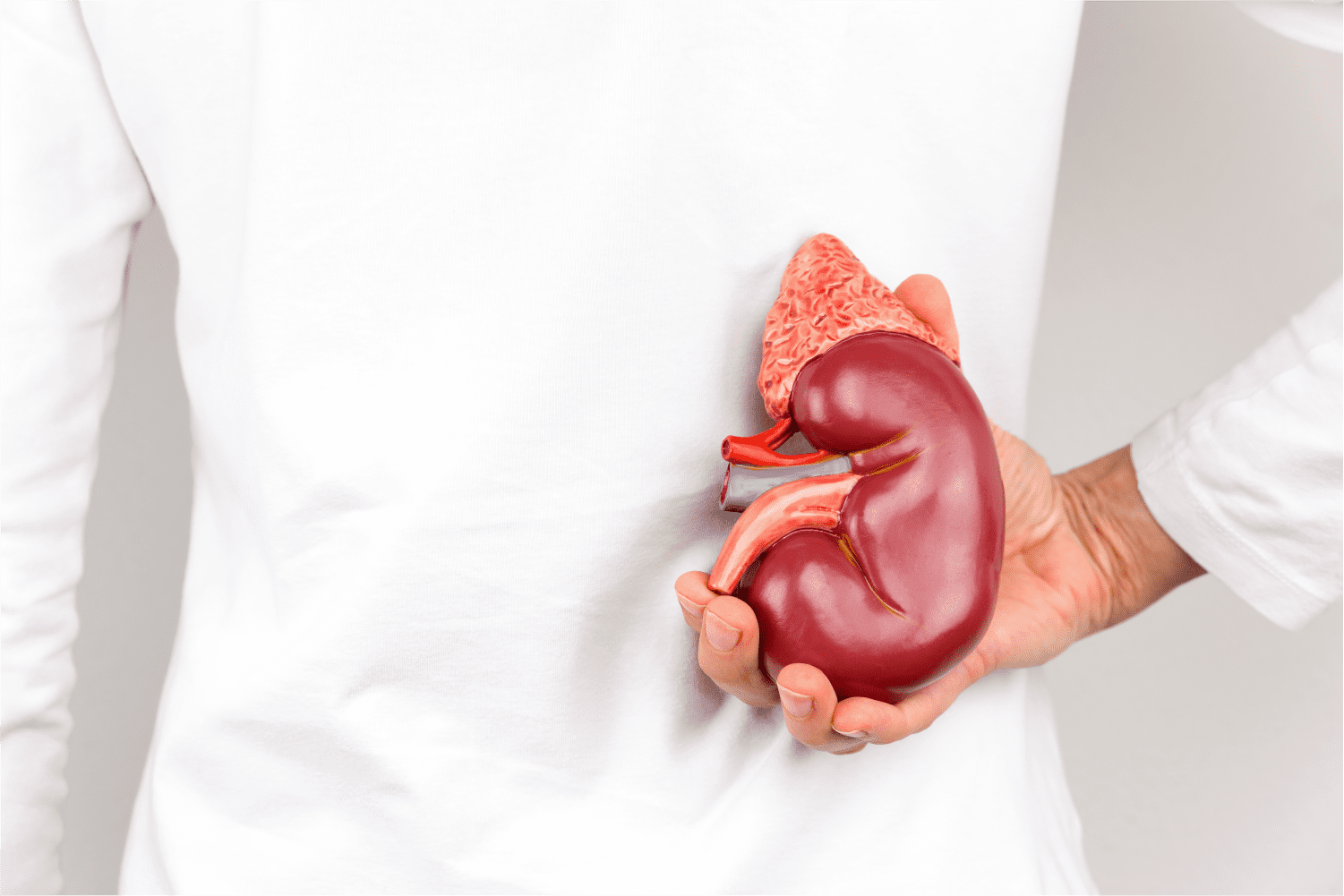COVID-19 Risk Factors – Underlying Health Conditions: Kidney Disease


There are certain factors that put particular groups of people at higher risk of experiencing severe disease if infected by SARS CoV-2. Click here for an overview.
The association between non-communicable disorders (NCDs) and more severe COVID-19 symptoms is consistent worldwide; those with underlying NCDs are more vulnerable to experiencing severe complications following infection with SARS CoV-2.
Some of the most prevalent NCDs include type 2 diabetes, hypertension, cardiovascular disease, chronic lung conditions, chronic kidney disease, chronic liver disease, and cancer.
This article covers kidney disease.
What is kidney disease?
Kidney disease occurs when the kidneys are unable to filter out water and waste from the blood effectively. The filtration of waste products is a natural part of the metabolic process; therefore, factors such as medication, environmental pollution and infection that add to waste generation, also add to the pressure on the kidneys to work efficiently and effectively. Kidneys have historically been thought of as organs that are unable to regenerate, but new research shows that they do have regenerative capabilities; however the rate of cellular turnover slows down with age. This means that the elderly are more susceptible to kidney disease.
The kidneys: a key target for SARS CoV-2?
As more data emerges on the clinical characteristics of individuals who have been hospitalised or who have died from COVID-19, it is becoming apparent that the most affected organs, after the lungs, are the kidneys. Recent reports from the USA show that most individuals over 65 who have died with or from COVID-19, have had concurrent kidney failure. It is important to remember that advancing age is an additional risk factor for severe disease.
It is becoming apparent that kidney disease is not only a risk factor for serious illness, but can also be a lasting complication of SARS CoV-2 infection. For this reason, there are two populations of patients to consider here:
- Those with pre-existing kidney disease.
- Those who recover from COVID-19, but are left with damage to their kidneys.
Pre-existing disease
Dialysis patients are more prone to acquiring infections because they have a weakened immune system. They often have co-existing conditions, such as hypertension or diabetes, which also make them high risk for severe disease following infection with SARS CoV-2.
Compromised kidney function means that the body is not able to effectively filter invading pathogens and toxins. Infection with SARS CoV-2 will put additional pressure on the kidneys, potentially leading to kidney damage and toxic shock which will require immediate hospitalisation.
Lasting damage to the kidneys
All patients who are hospitalised with COVID-19 should be monitored for signs of kidney damage. It is thought that more than 15% hospitalised patients (and > 20% of those who end up in intensive care) will experience an acute kidney infection (AKI). AKIs cause an abrupt loss of kidney function and require early detection and treatment to reduce the risk of chronic kidney disease.
Why are the kidneys vulnerable to infection with SARS CoV-2?
Further work is required to establish exactly why the kidneys are so vulnerable to infection. However, there are some possible explanations:
- Following infection SARS CoV-2 enters the cells of the body through a receptor called ACE2. Preliminary work suggests that this receptor might be expressed in organs throughout the body, meaning that COVID-19 has the capacity to become a systemic disease, targeting multiple organs, including the heart, liver, kidneys and lungs. In fact, RNA sequencing data revealed that ACE2 RNA expression is 100 times higher in the kidneys than it is in the lungs. Further work is required to establish whether or not this is of functional consequence.
- Severe inflammatory response, leading to a systemic immune response and the destruction of healthy tissue.
- A consequence of COVID-19 is increased blood clotting, which may clog the kidneys and reduce their ability to filter waste products.
- Low oxygen levels in the blood, due to respiratory failure, results in hypoxia. This can affect other organs such as the kidneys, leading to cell death and tissue damage
I have kidney disease, what should I do?
Individuals with pre-existing kidney disease should be aware that their risk of serious complications from COVID-19 is higher than the general population. If already undergoing dialysis, this will probably continue, with strict hygiene measures in place to protect you and your healthcare providers. You should also put the necessary measures in place to protect yourself, such as social distancing, maintaining good personal hygiene, staying hydrated and attempting to live a healthy lifestyle.
Sources:
- Cheng, Yichun, et al. “Kidney Disease Is Associated with in-Hospital Death of Patients with COVID-19.” Kidney International, vol. 97, no. 5, May 2020, pp. 829–838., doi:10.1016/j.kint.2020.03.005.
- “Coronavirus: Kidney Damage Caused by COVID-19.” Johns Hopkins Medicine, www.hopkinsmedicine.org/health/conditions-and-diseases/coronavirus/coronavirus-kidney-damage-caused-by-covid19.
- “COVID-19: Kidney Disease.” National Kidney Foundation, 3 June 2020, www.kidney.org/coronavirus/kidney-disease-covid-19.
- “People Who Are at Higher Risk for Severe Illness.” Centers for Disease Control and Prevention, Centers for Disease Control and Prevention, 14 May 2020, www.cdc.gov/coronavirus/2019-ncov/need-extra-precautions/groups-at-higher-risk.html.
- Post, Adrian, et al. “Sodium Status and Kidney Involvement during COVID-19 Infection.” Virus Research, vol. 286, 21 May 2020, p. 198034., doi:10.1016/j.virusres.2020.198034.












































